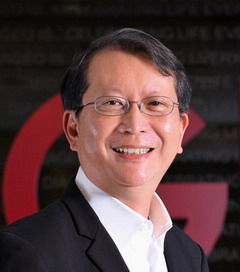Putting whisky on the menu
Updated: 2011-11-10 13:46
By Wang Zhenghua (China Daily)
|
|||||||||||
|
 Joseph Tcheng, managing director of Diageo's Greater China business. |
Tcheng said the high-end market is growing very fast in China as the rapidly expanding number of wealthy people develops a taste in the super-premium markets that include expensive, highly profitable beverages.
According to the Hurun Wealth Report 2011 released in April, China has 960,000 individuals with a personal wealth of 10 million yuan ($1.5 million) or more, up 85,000, or 9.7 percent, year-on-year.
Consultancy Bain said the Chinese mainland is set to be the fastest-expanding market for luxury goods this year and the world's third-largest by 2015.
"We put a lot of effort into promoting high-end products. Last year the sales of so-called super-deluxe whisky grew by more than 40 percent (in China)," Tcheng said.
In May, Diageo opened its first Johnnie Walker House outside of Scotland in Shanghai's downtown area, aiming to drive conversations around Scotch whisky in China.
The Johnnie Walker House is open to the public, and guests - those who are influential or the target consumer - are invited to the second and third floor of Johnnie Walker House for lessons including distilling and private tasting of pricey bottles, such as the $2,000 limited-release 1910 Edition Scotch whisky.
In another recent move, Diageo launched a contemporary redesign for the Johnnie Walker Blue Label bottle in a bid to position the flagship brand for success in the luxury spirits market. The new design aims to "amplify the brand's appeal to high net-worth consumers as they celebrate their own personal achievements", the drinks giant said.
The consumption of luxury spirits is taking off as the nation's economy rapidly expands - a trend that is going on across the entire Asia region and not only in China, Tcheng said.
The growth of the super-deluxe segment is also closely connected with a country's culture, he added. "In China, it's a convention to send luxury spirits as gifts at important festivals."
But despite the wide range of products it produces, Diageo is relying on Scotch whisky in China to compete with rivals including Pernod-Ricard and Remy Cointreau.
The London-based distiller owns 34 percent of LVMH's alcohol unit in China, giving it a slice of cognac profits from the venture's top-end Hennessy, one of the biggest brands in China by volume.
Cognac, which has long been established as a luxury product, especially in the country's southern provinces, has one of the largest market shares among all international spirits in China. It is followed by whisky, which sold approximately 1.7 million cases in the country in 2010.
Business insiders say it won't be easy for the liquor giant to get through to the cognac-smitten Chinese with its Johnnie Walker and Windsor. But Tcheng said that in China it's not a battle between whisky and cognac, and the final goal is to expand the range of imported spirits and gain a larger market share for international spirits.
"There are not only the consumers of imported spirits, but also those preferring baijiu, wines and beers. All consumers are our target," Tcheng said.








